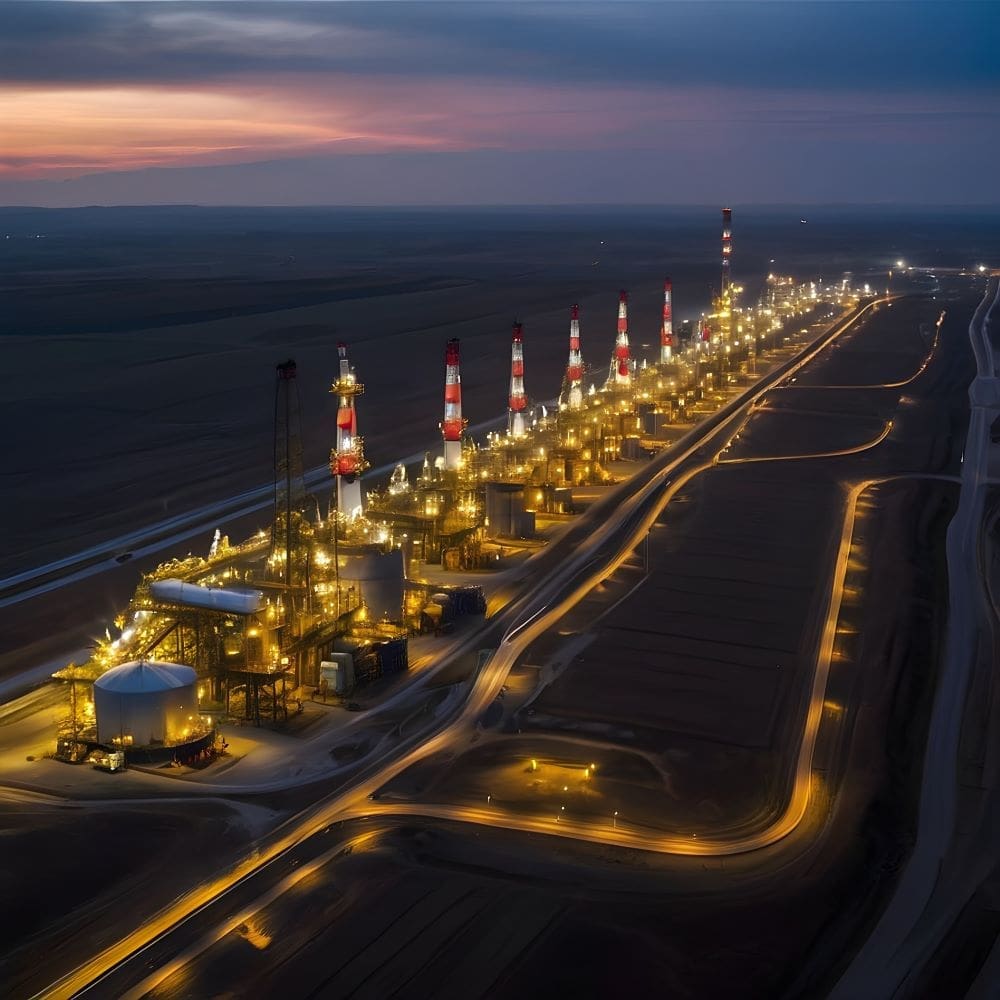As the global energy landscape evolves, oil and gas remain pivotal in satisfying the world’s growing energy demands. Despite increasing discussions around alternative energy sources, the oil and gas sector continues to be essential for powering transportation, generating electricity, and supporting industrial activities.
Oil and gas are fundamental components of the global economy. Recognizing their role in current and future energy needs is essential for stakeholders. This understanding enables better navigation of the sector’s challenges and opportunities, ensuring sustained energy security and economic growth amid evolving global demands.
The Indispensable Role of Oil and Gas in Meeting Global Energy Demands
Oil and gas are vital to fulfilling the world’s energy requirements, serving as the backbone of modern infrastructure. These resources are crucial for powering transportation systems, from cars and trucks to ships and aircraft, which are integral to global commerce and daily life.
Additionally, oil and gas generate a substantial portion of the world’s electricity, fueling power plants that supply energy to homes and industries worldwide. The versatility of these resources extends beyond energy production, as they are key raw materials for petrochemicals used in manufacturing everyday products, from plastics to fertilizers.
Current global energy consumption statistics highlight the dominant role of oil and gas. Despite advancements in alternative energy sources, these fuel sources continue to supply about 40 percent of global energy needs. Their high energy density and reliable supply make them indispensable in both developed and emerging economies. As energy demands rise with population growth and industrialization, oil and gas remain essential – and will continue to remain essential – in sustaining economic development and energy security worldwide.
Analyzing Global Energy Needs and the Pivotal Role of Oil and Gas
Global energy needs are projected to grow substantially, driven by increasing urbanization, economic development, and rising living standards. According to the International Energy Agency (IEA), global energy demand is expected to rise by 3.4 percent through 2026. Amidst this growth, oil and gas are anticipated to remain central in meeting these needs due to their unmatched energy density and versatility.
Oil and gas will play a crucial role in emerging economies, where rapid industrialization and infrastructure expansion drive significant energy consumption. For instance, countries in Asia and Africa are experiencing swift economic growth that requires reliable and scalable energy sources, making oil and gas pivotal in their development strategies. Furthermore, the flexibility of these resources supports diverse applications, from transportation to industrial processes, which other energy sources struggle to match in scale and efficiency.
As global energy landscapes shift, oil and gas will continue to be essential in bridging the gap between current energy needs and future energy transitions, ensuring stability and reliability in energy supply.
The Economic Impact of Oil and Gas Production Worldwide
The oil and gas industry generates millions of jobs worldwide, spanning exploration, extraction, refining and distribution. In major producing countries like Saudi Arabia, Russia and the United States, oil and gas operations are critical economic drivers, providing substantial revenue and supporting various sectors.
Globally, the oil and gas sector accounts for a significant portion of GDP, with revenues influencing national budgets and development projects. For example, the sector’s economic contributions are vital for funding public services and infrastructure in oil-rich nations. Additionally, the industry’s investments in technology and infrastructure foster economic development and technological advancement, creating ripple effects across other industries.
Moreover, oil and gas production plays a key role in global trade. The movement of these resources through international markets affects global trade balances and economic relations. As economies become increasingly interconnected, the economic impact of oil and gas production continues to be a cornerstone of global economic stability and growth.
Policies Shaping Oil and Gas Industry Sustainability Efforts
The sustainability of the oil and gas industry is heavily influenced by evolving policies and regulations aimed at mitigating environmental impacts and promoting responsible practices. Governments worldwide are enacting stricter environmental standards and sustainability frameworks to address climate change and reduce carbon footprints, including emissions reduction targets, stricter waste management protocols, and enhanced transparency requirements for companies.
For instance, the European Union’s Green Deal and the United States’ Infrastructure Investment and Jobs Act mandate significant reductions in greenhouse gas emissions and encourage investments in cleaner technologies. These regulations push the oil and gas sector to adopt advanced technologies and practices that minimize environmental damage, such as carbon capture and storage (CCS) and more efficient extraction techniques.
Similarly, industry-specific policies, such as those governing offshore drilling and hydraulic fracturing, are being updated to ensure greater safety and environmental protection. Companies are increasingly engaging with policymakers to align their operations with these standards, fostering a more sustainable approach to energy production. Adapting to these policies allows the oil and gas industry to work toward balancing energy needs with environmental stewardship.
Insights Into the Future of Oil and Gas Amid Global Sustainability Goals
As the world advances toward sustainability goals, the future of oil and gas will be defined by adaptation and innovation. Despite growing emphasis on reducing carbon emissions and increasing pressure to align with global sustainability objectives, oil and gas will continue to play a crucial role in meeting global energy needs due to their energy density and reliability.
To meet these goals, the oil and gas sector is investing in technologies that reduce environmental impact, such as CCS, advanced drilling techniques, and improved energy efficiency, which are becoming increasingly central to its operations. These advancements aim to minimize the sector’s carbon footprint while maintaining its essential role in the global energy supply.
Additionally, industry leaders are focusing on transitioning toward more sustainable practices, including enhancing transparency. By embracing these changes, the oil and gas sector is positioning itself as a key player in a balanced energy future, ensuring continued contribution to global energy security while addressing environmental concerns.
The path forward involves navigating regulatory pressures and investing in sustainable technologies, ensuring that oil and gas remain integral to the global energy landscape while supporting a cleaner, more sustainable future.
Adam Ferrari leverages nearly 20 years of experience in the oil and gas industry as a leader atPhoenix Energy, focusing on key initiatives for the company’s growth. Raised in an Illinois farm town, he earned his chemical engineering degree magna cum laude from the University of Illinois at Urbana-Champaign. Starting at bp in the Gulf of Mexico, Ferrari honed his engineering skills, then moved through various leadership roles and a stint in investment banking at Macquarie Capital. His entrepreneurial drive led to the founding of multiple oil and gas ventures. Phoenix is the culmination of all his work experiences and is his most important project yet.






